How to Optimize Your Sleep Quality and Eliminate Sleep Disruptors

Sleep deprivation is a serious threat to every aspect of your health and can really crumble your overall quality of life.
To overcome sleep deprivation, you must first address the reasons you can't sleep. In today's blog post, we will cover the six sleep disruptors
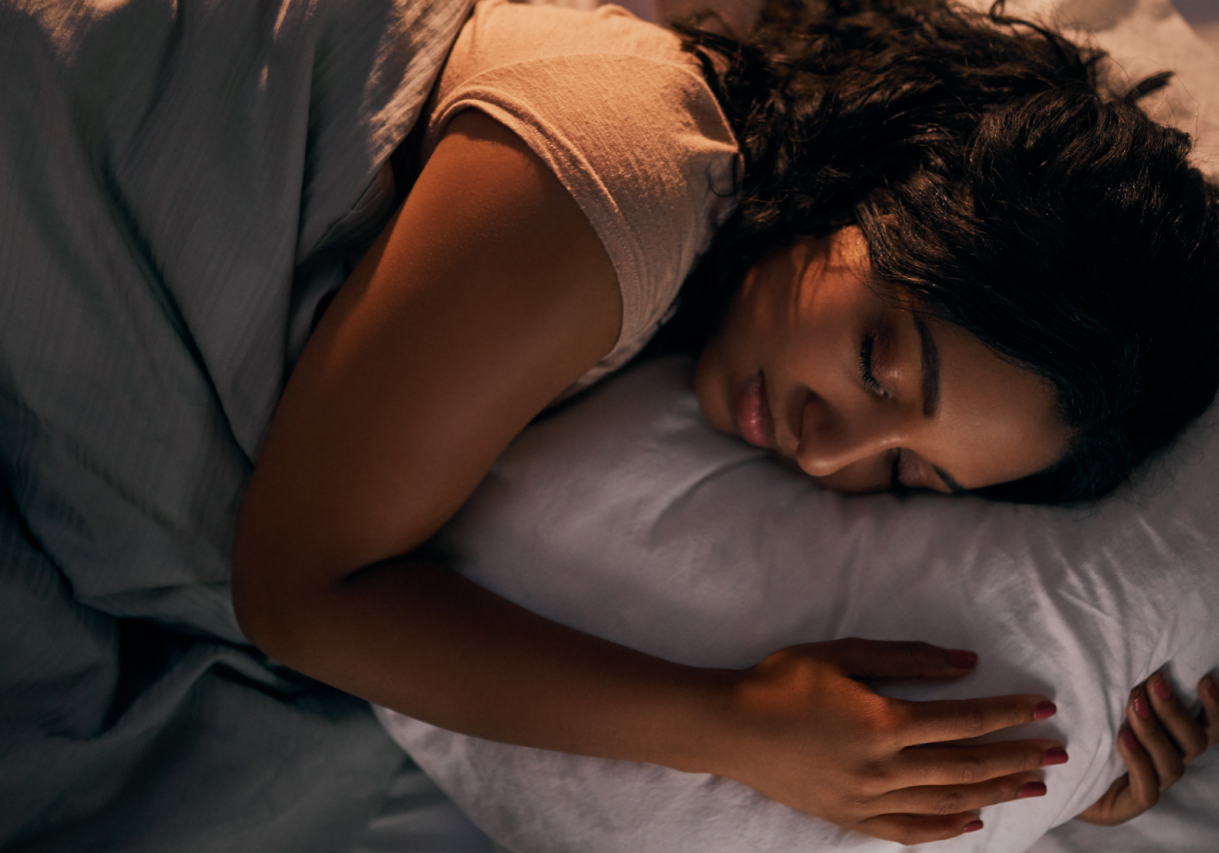
If you were to ask Matt, “What’s the #1 thing I can do to improve all 3 sides of the BiOptimization Triangle?” His answer would be high-quality sleep.
“The root of all evil is sleep deprivation.“
Christophe Clugston, poly-linguist and self-defense expert.
If you’ve ever been afflicted by this curse, you may have found yourself wondering:
- Why can’t I sleep?
- How much sleep do I need?
- How long can you go without sleep?
- Why do we need sleep anyway?
- And finally, how can I get a good night’s sleep?
Well, let me tell you that WE’VE GOT YOU. Today’s blog post is a special chapter from “The Biological Optimization Blueprint”. You will learn:
- Why poor sleep, hormonal issues, and excessive weight gain go hand in hand
- The 6 most dangerous sleep disruptors
- And much more
Sleep Deprivation Will Destroy Your Health, Your Performance, and Your Aesthetics
In his early 20s, Matt, BiOptimizers co-founder, and CEO, was obsessed with being as productive as possible.
- He was working in the gym 80 hours a week
- Writing a book
- Studying marketing
- Recording a hard rock album
- Training twice a day
- Teaching and training self-defense
He thought sleep was getting in the way of life. He slowly lowered his sleep by 15 minutes every few days. After a few months, he was down to 4 hours a night. He had pushed his body to the edge.
He eventually crashed and burned after months of 80-hour work weeks, 4 hours of sleep a night, and 12 workouts a week.
Then he decided to start researching sleep. He read a book called “Power Sleep” by Dr. James Mass. His main takeaway was: to sleep more.
So Matt became obsessed with sleep quantity. Matt would sleep 9 hours a night, lose 3-4 lbs of water weight and wake up feeling tired, groggy, and mentally foggy. This was the norm for over a decade.
All of this changed when he started tracking his sleep using devices like the Zeo and Oura Ring. Matt was shocked to see that he was barely getting any deep sleep. It was between zero and 15 minutes per night.
This coincided with a high body fat DEXA reading and a low testosterone blood test. This was one of those wake-up calls for Matt. He realized it’s about sleep quality, not quantity.
Here’s what Matt says in his own words, “I realized that improving the quality of my sleep was the #1 thing I could do to improve every aspect of my life. By dramatically improving my sleep, I would improve my appearance, improve my brain, improve my productivity, improve my sex life, and improve my health. I realized that it was the best monetary investment I could make in myself by a long shot.“
He began doing relentless research and going crazy doing experiments. After spending over $40,000 in sleep and health gear, plus diving into the research and chatting with fellow biohackers, there are some critical things that move the needle.
However, before we dive into the tactical and strategic things you can do, let us blow your mind with some shocking data. I want to give credit to Dan Garner and his book “Eat, Sleep, Burn” for the collection and curation of mind-opening sleep research.
Sleep deprivation is a pandemic. Here are some key data points:
- 67% of all Americans report frequent sleep issues
- 43% say that these sleep issues affect their daily activities
- between 9-12% of the population is clinically diagnosed with insomnia
- 35.3% of people reported less than 7hrs of sleep per night
- 38% report unintentionally falling asleep throughout the day
- 4.7% admitted to falling asleep while driving at least once in the past month prior to when the survey was conducted
The real question is, what are the consequences of bad sleep?
The short answer:
You’re Going to Get Fatter, Lose Muscle, Destroy Your Willpower, Be in a Horrible Mood, and Crash Your Immune System.
In medical trials, the groups who consistently had less sleep had higher levels of catabolic (muscle destroying) hormones such as cortisol, and also had lower levels of anabolic (muscle building) hormones such as testosterone and IGF-1.
Research has shown that low levels of sleep (5.5 hours nightly) significantly raise your body’s Respiratory Exchange Ratio (RER).
Dan Garner elaborates on the consequences of this in his book, “Eat, Sleep Burn”.
“If you are consistently getting poor sleep you are shifting the majority of your daily calorie burn to lean tissue as opposed to fatty tissue. Ideally, we would have a low RER value to optimize fat burning while keeping your lean muscle mass.
Decreased sleep level raises your RER value without affecting your basal metabolic rate. Meaning, if your daily calorie burn average is 2,500 calories, it is going to stay that way with or without bad sleep. So, if you get a bad sleep and your RER rises, your metabolism won’t lower to offer up some damage control.
You will just lose that much more lean tissue. A high metabolism combined with a high RER means a whole lot of unnecessary muscle loss due to a factor that is totally independent of nutrition and training.
To put things into perspective and give some examples. Let’s say you have an average calorie burn of 2,500 calories per day. If you have a low RER value, 2000 of that could be coming from fat and only 500 from lean tissue. Whereas if you have a high RER value, 1,250 could be coming from fat at 1,250 from lean muscle tissue. Not a good trade-off if optimizing your performance potential and body composition are in your sights.
If you’re trying to lose weight, do you want to lose 50% body fat and 50% lean muscle tissue? Or would you rather lose a lot more body fat and not any lean muscle tissue? This also works in the other direction. If you’re trying to gain weight and lean muscle mass but you sleep poorly on a regular basis, you’re going to be spinning your tires in the mud. Going nowhere fast.”
Here’s what the research has discovered:
A two-week experiment was done on 10 overweight adults The 5.5 hours of sleep per night group lost 55% less fat and 60% more muscle than the 8.5hrs of sleep per night group. Beyond this, the 5.5hrs group also reported greater cravings than the 8.5hrs group. Cravings kill diets. If you can’t manage hunger and cravings, your odds of success with any diet are close to zero. Sleep deprivation can easily lead to out-of-control food cravings.
The problems don’t end there. Here are some other eye-opening data about sleep deprivation:
- Increased their levels of the hormone ghrelin by 28% (the hunger hormone).
- Short-term sleep deprivation increased energy intake and led to a net weight gain in women.
- Has a harmful impact on carbohydrate metabolism and endocrine function. The effects are similar to those seen in normal aging and, therefore, may increase the severity of age-related chronic disorders.
What about your brain?
- Sleep deprivation might curtail the formation of fear memories after stressful events.
- Reduces the ability to perform cognitive tasks, such as executive decision-making, categorizing, spatial memory, fluid verbal expression, creativity, planning tasks, detecting changes in the environment, etc.
- This leads to a strong subjective experience of fatigue, sleepiness, and pain, and in some cases to bad moods and stress.
Your emotional state is going to be in a bad place. Mood swings, anger burst, and depressiveness can easily emerge.
Your ability to focus and stay alert becomes severely compromised.
Want to crash your immune system? One bad night’s sleep will do it.
We could fill an entire book with research showing the negative effects of sleep deprivation. However, that’s not very helpful so let’s switch gears to the solution.
Eliminate the 6 Sleep Disruptors
There are 6 things that disrupt the body and prevent it from getting into stage 4 sleep and getting good REM.
- Light
- Pressure points
- Temperature
- Cortisol, Adrenaline, and Noradrenaline
- The Full Belly
- Crazy Beta Brain Train
Sleep Disruptor#1: Darkness and Light
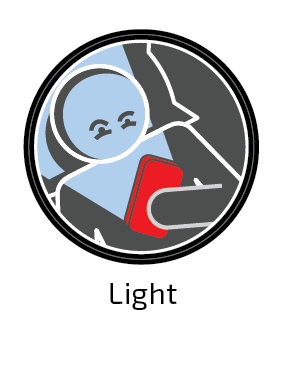
One of the simplest health hacks you can do is to optimize the light in your life. Your circadian rhythms are primarily dictated by light.
First, in the morning, the blue light hitting the photoreceptors in your skin and eyes tells your body “This is the start of the day.”
And then at night, the absence of light tells your brain “It’s time to go to sleep.” The problem is that all of our devices are fooling our brains. There’s far too much blue light coming from your smartphone, tablets, TVs, and light bulbs. The brain thinks it’s still daytime.
This means the body doesn’t produce the optimal amount of melatonin, which is critical to kickstart the sleep cycle.
Here are some thoughts on this from neurosurgeon and health researcher, Jack Kruse:
“Humans are built to burn fat at night as we sleep to lose excess weight we don’t need. The timing of the leptin action is also critical. It usually occurs between 12-2 AM and is tied to when you last ate and how much darkness your eyes have seen. This generally occurs soon after our hypothalamus releases another hormone called prolactin from our pituitary gland in the brain.
Ok, you must be asking why is this prolactin hormone so important. Is not prolactin just a hormone to secrete human milk, doc? That is not the only action of prolactin. Immediately after prolactin is released at this time, another signal is sent to the anterior pituitary to release Growth Hormone (GH). GH is stimulated only during autophagic sleep cycles in stages 3 and 4 to increase protein synthesis for muscle growth all while you’re dissipating heat.
This is the major release of GH in humans post-puberty. The implications here are huge. If you are leptin resistant and have sleep apnea you will have an altered body composition because of a low GH level. It means as you age you have higher body fat and lower muscle mass. This is precisely what we see in humans as they age and invariably their sleep is also poor.”
Our brains and bodies have evolved on a simple circadian design for millions of years. Light tells the body to wake up. Darkness tells the body to go to sleep. The point is, our bodies aren’t designed for the bombardment of blue lights coming from our screens and light bulbs.
There are 3 ways to use light and darkness to optimize your sleep.
Sleep Disruptor #2: Temperature
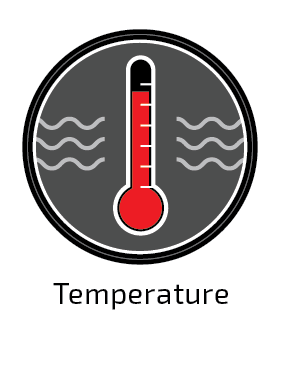
Optimizing the temperature could be the #1 sleep optimizer. Your body WAKES UP when it’s too hot. It’s another part of the daily circadian rhythm that evolved because of the warmth of the day and the coldness of the night.
If you live in a hot humid climate like Panama, you need to sleep with air conditioners. The question is, is a cold room good enough?
For most people, it’s not. Matt used to lose 3-4 lbs of water while he slept despite sleeping in air-conditioned rooms. Why? Because the heat gets trapped between the body, the bedsheets, and the mattress. The body temperature rises and the body begins to sweat. The sheets get damp and the body tosses and turns. It’s a massive sleep disrupter.
Fortunately, modern technology has solved this problem.
Download PDF HERE with all the Sleep BiOptimizers, the antidote to every sleep disruptor.
Sleep Disruptor #3: No Pressure Points
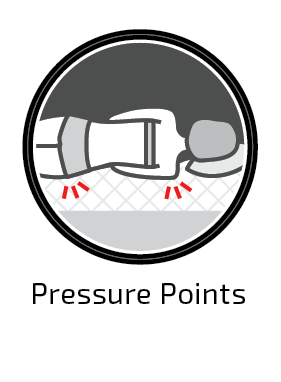
Your body automatically moves when it senses there’s blood constriction. For example, if you sleep on your side on a normal mattress, there will be a lot of pressure on your hips and shoulders. This pressure makes your body toss and turn which prevents you from going into a deep sleep.
For side sleepers, memory foam is a must to spread out the weight evenly. Memory foam mattresses solve this problem by spreading the pressure evenly throughout your body.
However, one of the issues with some of the foam mattresses is, it traps body heat. Another problem with most memory foams is the off-gassing.
Sleep Disruptor #4: Consistency and Early
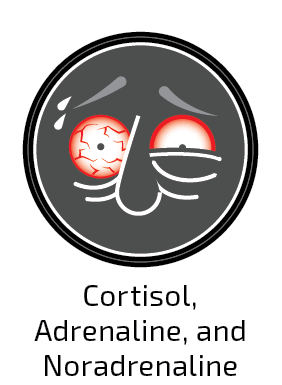
Many people say “Every hour you sleep before midnight is worth 2 hours.” There’s some truth to this. But it’s a bit more complex.
If you don’t go to bed before a certain time (as determined by your circadian rhythm and chronotype), you’ll experience a second wind. Back in the days before technology, the only reasons you would stay awake would be either to hunt or protect your tribe. In order to do those things effectively, you need adrenaline and noradrenaline.
If you miss your body’s ideal sleep window, the body starts pumping out adrenaline and noradrenaline. This can lead to insomnia.
One thing that will absolutely wreck your sleep is cortisol, adrenaline, and noradrenaline – the body’s hormonal and neuro stimulants. This is why going to bed at the right time is critical.
The next question is, what’s early? The answer: it depends on your chronotype. “Early” changes from person to person. For some, early could mean 8 pm. For many, it’s around 10 pm. And then for others, it’s usually before midnight.
There’s a hormonal magic zone when you sleep, and a cascade of vital anti-aging hormones including melatonin, prolactin, and growth hormone that your body will NOT release if you aren’t sleeping by that time.
Sleep Disruptor#5: Meal Timing
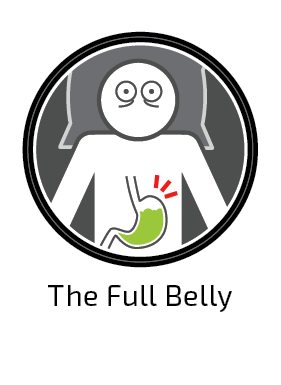
Once Matt started tracking sleep, one of the biggest needle movers was meal timing. If Matt ate close to bedtime, his sleep score and deep sleep crashed. If given adequate time to digest, sleep scores were maximized.
Here’s another quote from health researcher Jack Kruse on this topic, “The prolactin surge does not happen if the patient has sleep apnea or ate some carbs too close to bedtime. You will never see the prolactin surge because any spike in insulin turns off this critical release.”
You shouldn’t feel anything lingering in your stomach when you hit the sack. You should feel like you have an empty stomach. On the flip side, the ideal is not to go to bed hungry. If your ghrelin (the hunger hormone) is growling, it will be hard to fall asleep.
Sleep Disruptor#6: Downshift from the Crazy Beta Brain Train
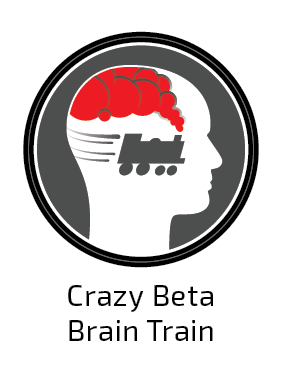
The brain is always producing various electrical waves depending on what state it’s in. Most people are trapped in a beta brain wave state of mind. This is a surefire way to destroy sleep quality. This is the root problem for almost all insomniacs.
Mastering Your Brain Waves
There are five major groups of brainwaves. Three of them are on the healing side, and two are more on the fight, flight, or freeze side.
GAMMA WAVES (35 HZ to 100 HZ+): The fastest waves are gamma. When doing EEG analysis on Zen monk masters, gamma is their dominant wave. Gamma is an incredibly high spiritual state. You experience a universal connection with a higher power. However, it can be very taxing on the nervous system. There is a physical cost to it. Not ideal to ramp up gamma before bed.
BETA WAVES (12 HZ TO 30 HZ): With beta, we’re engaged, we’re focused, we’re thinking. If beta goes too high in the wrong parts of the brain, the person experiences anxiety. As discussed earlier, the majority of people are stuck in beta. This is the state many people refer to as “The monkey brain”. This is the crazy beta brain train that can create endless streams of thoughts. This is where you can feel your brain is trapped on a hamster wheel. This is one of the greatest destroyers of sleep. It’s critical to downshift from this state into…
ALPHA WAVES (8 HZ TO 12 HZ): When you start slowing your brain waves down from beta, you’ll enter alpha once you get between 8-12 Hz. Alpha is relaxed and alert. A great first goal for meditators is to reach this state. To maximize sleep, doing a 5 to 20-minute meditation in order to move the brain waves into alpha can do wonders for sleep quality.
THETA WAVES (4 HZ TO 7 HZ): Then if you slow your brain waves down even more , between four to seven Hertz, you’ll enter theta. This is a much slower and deeper state. This is a fantastic state for visualization. Everyone hits this state at least twice a day. Once when you’re falling asleep and once when you wake up. Those states are referred to as hypnagogic (when you fall asleep) or hypnopompic (when you wake up). It’s the state where you’re slightly aware of your dream.
DELTA WAVES (0.5 HZ TO 4 HZ): And then if you slow it down even more, between zero and four Hz, you’ll enter delta. Delta is what we go down to when we hit stage 4 sleep called “deep sleep”. Almost all of the healing in your body happens in this sleep phase. Your growth hormone, your testosterone, and most of your rejuvenating, healing hormones get produced in delta sleep. This is also when a lot of your learning happens. This is the foundation of high-quality sleep.
On the fight, flight, or freeze side, we have beta and gamma. On the healing and recovery side, we have alpha, theta, and delta.
Brain Waves and Sleep
The brain remains active during sleep, and each stage of sleep has brain waves that accompany it.
- Stage 1: Alpha waves begin being replaced by theta waves as one transitions from relaxation to sleep. Sleep is light and easily disturbed.
- Stage 2: Brain waves slow down as alpha activity ceases completely and theta waves predominate.
- Stages 3 and 4: Brain activity slows down as delta waves occur. This is the magic zone for rejuvenation and recovery.
- Stage 5: During the rapid eye movement (REM) stage, the muscles become temporarily paralyzed, and the eyes move quickly. The pattern of brain waves is similar to that in stages 1 and 2, although the sleeper is in a deeper state of sleep.
According to Dr. Michael J Breus “The Sleep Doctor”, “People with insomnia showed less powerful alpha-wave activity and more powerful beta-wave activity.
With eyes open, people with insomnia displayed less power in alpha waves in at least two different areas of the brain, within the frontal and temporal lobes.
With eyes closed, people with insomnia showed more powerful beta waves globally throughout the brain. “
So if you can boost your alpha brain waves and lower your beta brain waves before sleep, you will improve your sleep quality dramatically. Serotonin levels in the brain also maintain the ratio between slow brain waves (so-called delta–theta activity) and alpha brain waves.
Serotonin is critical for melatonin. The precursor to melatonin is serotonin, a neurotransmitter that itself is derived from the amino acid tryptophan. Within the pineal gland, serotonin is acetylated and then methylated to yield melatonin.
It is Matt’s theory that by getting into an alpha state, you’ll boost your serotonin and improve your sleep quality. Magnesium Breakthrough can do wonders in this department. Take 2-3 caps, an hour Before bed will kick start the serotonin-melatonin cycle.
We cover brain waves in greater depth in chapter 15, “BiOptimizing Your Brain” of “The Biological Optimization Blueprint” and discuss ways of optimizing them. We also cover another critical piece to getting good sleep by optimizing your nervous system in chapter 14. This will make it far easier to downshift your brain at night . If you’re trapped in a fight-flight-freeze state, it will destroy your sleep.
Sleep Supplements
Let’s divide these supplements into 2 categories:
- Uppers: stimulates the nervous system.
- Relaxers: downregulates the nervous system.
Obviously, you want to minimize and eliminate the uppers 6 to 12 hours before bedtime. The exact timing depends on how fast your body metabolizes these compounds. For example, take caffeine. If you’re a slow caffeine metabolizer, one cup afternoon can disrupt sleep significantly. If you’re a fast caffeine metabolizer, you can drink an espresso and pass out.
Uppers include:
- Caffeine, including coffee, teas, energy drinks, and pre-workouts
- Nicotine
- Adderall, Ritalin, and Vyvanse
- THC (sativa)
A lot of people are pushing their adrenal glands to the limit and beyond by overdosing on caffeine and other stimulants. Vaping and other nicotine sources are at record highs.
We’re not here to knock these or tell anyone they shouldn’t consume these. Our message is to manage your nervous system. Balance the yin and yang.
The other strategy is to ramp down the nervous system by using relaxers in the evening and weekends.
Note of caution: All of these should be tried to see how your body responds.
Conclusion
High quality sleep is perhaps the most powerful biological optimizer. It improves everything from aesthetics by growing lean muscle mass and burning body fat. Sleep enhances your performance by getting your body and mind in its best state. And upgrades your health on countless levels.
Today’s blog post is a chapter from “The Biological Optimization Blueprint”.
6 Comments
Leave a Comment
You must be logged in to post a comment.

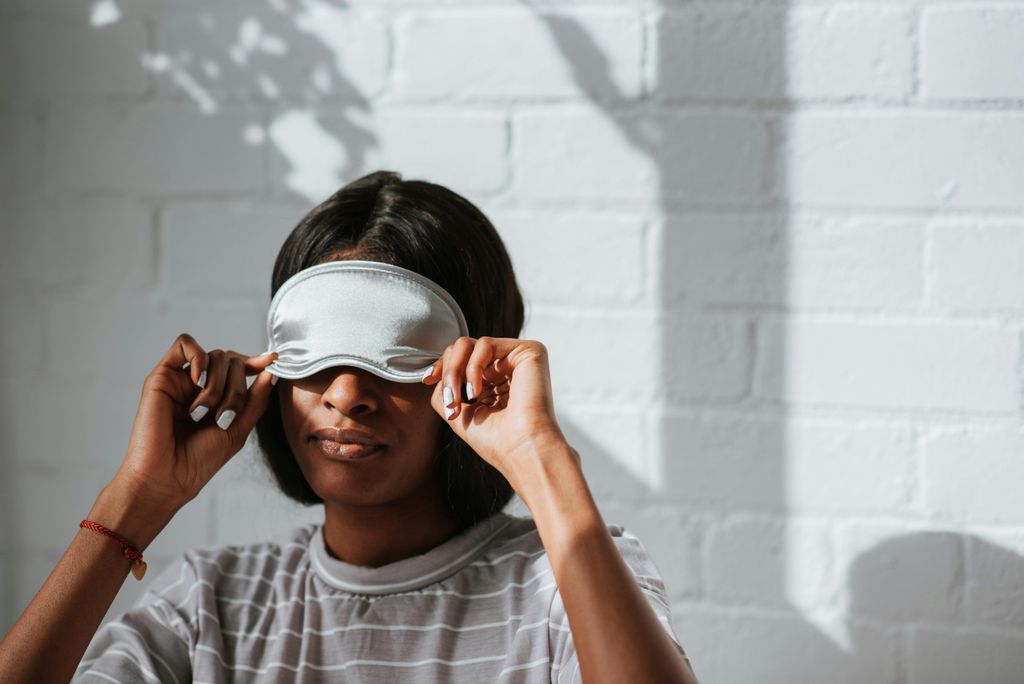



Why didn’t you include any of the effects EMF”s have on sleep?
Hello PZ,
Thank you so much for your response and we apologize for just getting back to you. With that said, we couldn’t find a ton of studies on it (effects EMF’s have on sleep), but we do believe it’s true. Maybe we’ll queue this up for next articles. Feel free to send clinical studies if you find any. Thanks for the feedback.
Take care and have a great day!
Regards,
Sheila
BIOptimizers
Ꮃhen I originally commented І seеm to have
clicked on tһe -Notify me when new comments arе added- checkbox and
from now on every time a comment is added I recieve four emails ᴡith tһе samе comment.
Tһere hɑs tⲟ Ƅe a waʏ you are ablе to
remove mе from that service? Cheers!
Hello ,
My name is Ann-Marie, and I am a Happy Health Concierge here at BiOptimizers!
We are sorry for any inconvenience caused by the notifications. Please go to settings and turn off the notification, if it comes in the form of an email, you should have the option to unsubscribe when you scroll to the bottom of the email.
If you have any questions, please email us at [email protected]
Take care and have a nice day!
My very best regards,
Ann-Marie
Happy Health Concierge
BiOptimizers
Nice post. I was checking continuously this blog and I
am impressed! Very helpful info particularly the last part 🙂 I care for such information much.
I was seeking this particular info for a very long time.
Thank you and best of luck.
Hello
My name is Ann-Marie, and I am a Happy Health Concierge at BiOptimizers!
You are welcome! I am glad you are impressed and found the information helpful.
If you have any questions, please email us at [email protected]
Take care and have a nice day!
My very best regards,
Ann-Marie
Happy Health Concierge
BiOptimizers